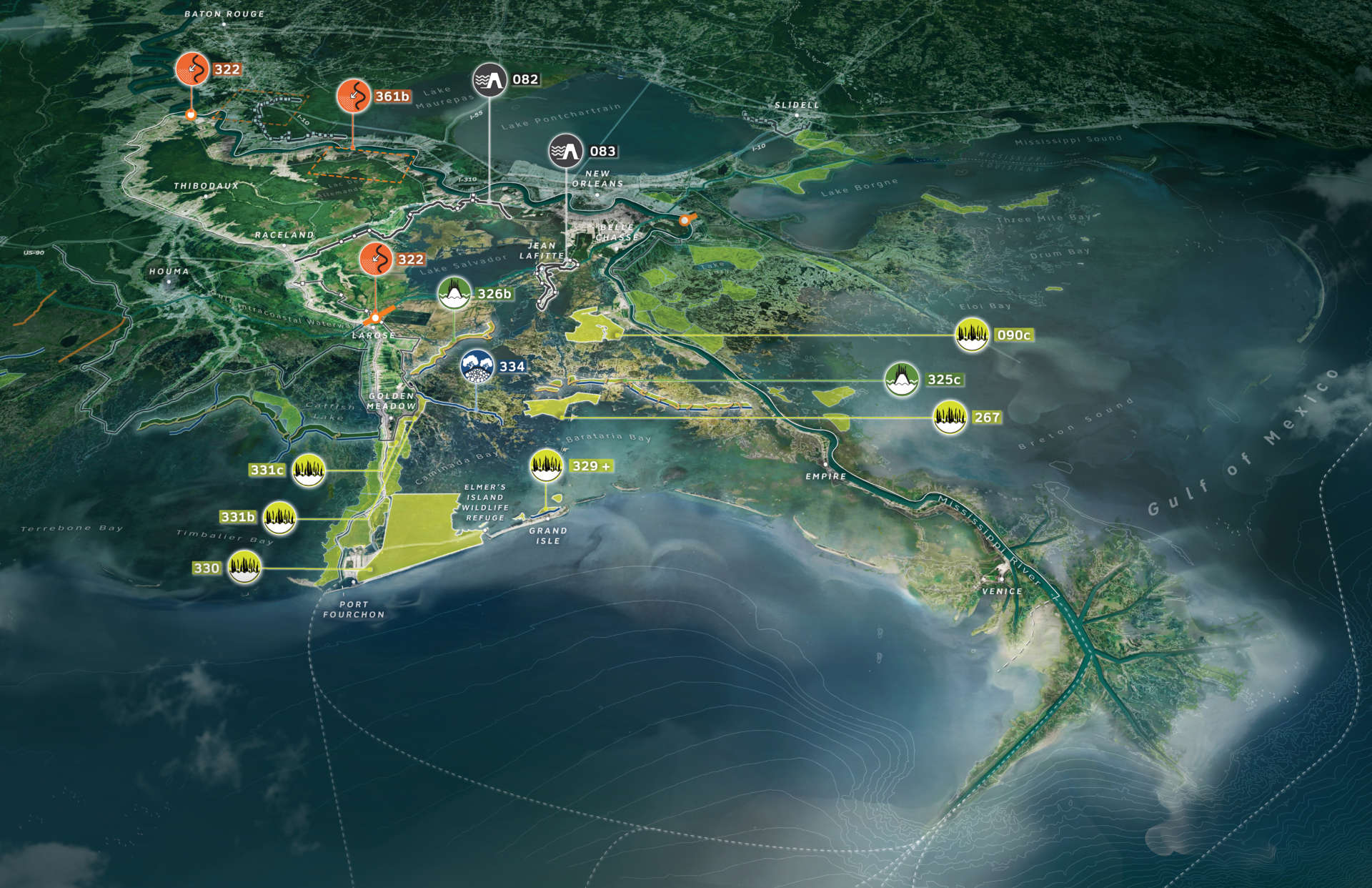Today, the Board of the Louisiana Coastal Protection and Restoration Authority (CPRA) unanimously approved the 2023 Coastal Master Plan—a living document that guides and summarizes the state’s coastwide investments in risk reduction and restoration projects, now in its fourth edition and required by law to be updated every six years.
Since 2007, the plan has driven investment of over $21.4 billion in coastal protection and restoration projects, benefitting over 55,807 acres of habitat, 369 miles of levee improvements, and 71.6 miles of restored barrier islands and headlands across the coast to help reduce risk to coastal communities and the ecosystems that sustain them.
For the latest version of the plan, SCAPE collaborated with CPRA to increase the plan’s accessibility as a public document for the everyday Louisianan—reframing the overall plan in terms of graphic identity, mapping decisions, project and data visualizations (such as how to represent long-term land change), engagement collateral, and general reading comprehension, and a community-centric approach to the narrative structure—in an effort to demystify the often complex modeling and decision-making processes behind restoration projects.
“The 2023 Coastal Master Plan is the most expansive this agency has produced, giving us an unprecedented opportunity to improve the lives of south Louisianans who are looking to the state for answers to some of the most dire issues facing Louisiana,” said CPRA Chairman Chip Kline. “Implementing the projects in the plan over a 50-year period could reduce risk from tropical storms and hurricanes to coastal communities to less than what the current risk level is today. A better protected and more resilient Louisiana should give the people of this state hope for decades to come.”
Incorporating input from communities across the coast gathered throughout a public review period, the approved plan now proceeds through the Louisiana Legislature for adoption during the 2023 regular session.
“Louisiana is on the front lines of a climate-fueled transformation that will fundamentally alter the lives of coastal communities for generations, and the bountiful estuarine landscapes that define them,” said Kate Orff, FASLA, Founding Principal of SCAPE. “The Coastal Master Plan is a critical tool to understand the broad strokes of this story—and all we stand to gain by acting now to implement risk reduction and restoration projects at a regional scale.”
Learn more:
For press:

